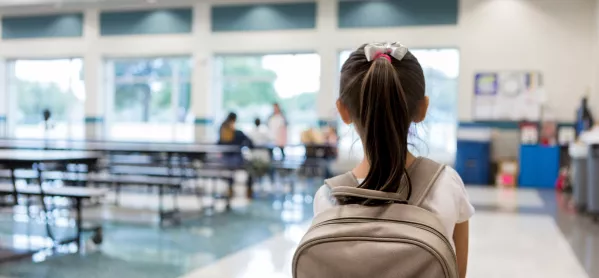Councils urged to minimise number of pupils in schools

Councils in Scotland should minimise the number of children in schools and nurseries during the latest Covid-19 lockdown, education secretary John Swinney has said.
Appearing before the Scottish Parliament’s Covid-19 Committee today, Mr Swinney insisted that local authorities should be “free” to take decisions at local levels.
But he also said that the Scottish government would be monitoring the number of pupils in schools from next week, as well as looking at data on the number of journeys being made and the use of public transport.
Exclusive: Cancelled exams save the SQA almost £20m
Also today: Remote learning for FE and university students until the end of February
Additional support needs: ASN teachers call for blended learning over Covid fears
With mainland Scotland having gone into a second national lockdown, Mr Swinney told MSPs that “volumes of movement in society are greater than they were in the period immediately following lockdown in March 2020”.
Coronavirus: Call to keep the number of pupils in school ‘as low as possible’
And he repeated warnings from first minister Nicola Sturgeon that further restrictions may be needed if Scots fail to cut levels of contact with other people.
Mr Swinney, who is also deputy first minister, said: “If we do not see a reduction in human interaction as a consequence of those restrictions, there is every likelihood we will have to put in place further restrictions as a consequence to ensure we reduce that degree of activity in our society.”
When the extended school Christmas break - for most but not all pupils - comes to an end on Monday, 11 January, only children whose parents are key workers and those youngsters who are deemed vulnerable should be in class.
Other pupils will learn remotely from home, with the education secretary saying councils have been told to keep the numbers in school as low as possible.
He told MSPs: “Local authorities will be operating within a framework the government has set, which is to try to reduce human interaction by keeping those placements to a minimum.
“Local authorities must be free to take those decisions at local level. I think that is the right position for us to adopt.
“But fundamentally that means not everybody is going to be able to secure a place for their child.”
Mr Swinney added: “Whichever way we look at this, whether it is about where people are employed, whether they are able to work from home, whether they are able to find childcare, all of these factors contribute to the level of human interaction within our society.
“And there may be a necessity for us to restrict that further if we don’t see that reducing as a consequence of the steps we are taking already.”
In Glasgow City Council, education director Maureen McKenna has said decisions about classroom numbers would be left to the discretion of schools “who know their families” and said the council was adopting a “less rigid” approach than other local authorities.
In comments reported in The Herald, she said: “In the last lockdown we didn’t see enough children and there were safeguarding issues because parents don’t identify as being vulnerable.
“We want to be sympathetic to our parents because there are a lot of parents who are struggling and experiencing hardship and trying to hold on to a job.”
Mr Swinney also said that employers need to recognise “the stay-at-home message, the work-from-home message, really must be complied with to a greater extent than perhaps people are thinking of doing just now, because without that we will not reduce the level of human interaction by the necessary amount to ensure that we are effective in preventing the spread of the virus”.
The current lockdown legislation only allows people to leave home for an essential purpose, such as food shopping or medical appointments.
You need a Tes subscription to read this article
Subscribe now to read this article and get other subscriber-only content:
- Unlimited access to all Tes magazine content
- Exclusive subscriber-only stories
- Award-winning email newsletters
Already a subscriber? Log in
You need a subscription to read this article
Subscribe now to read this article and get other subscriber-only content, including:
- Unlimited access to all Tes magazine content
- Exclusive subscriber-only stories
- Award-winning email newsletters